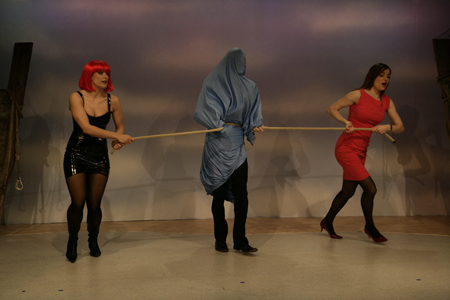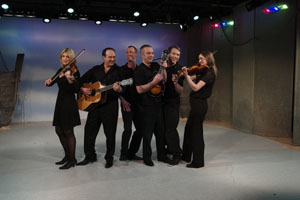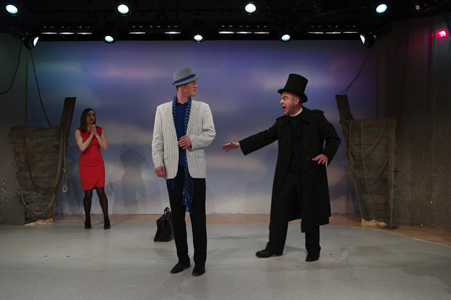Uta Buhr
The new Play at the English Theatre of Hamburg

Did you know that William Shakespeare, Britain’s greatest playwright ever, wrote one of the first “Sitcoms?” If you do not like this rather trivial modern word, just call it a farce. It is true that Shakespeare’s shortest and perhaps earliest comedy is based on the oeuvre by the well-known Roman citizen and comic playwright Plautus who lived around 250 B.C. The plot is quite intricate since two sets of identical twins are involved in the play, both being accidentally separated by birth on a boat totally damaged during a heavy storm in the Mediterranean Sea. Years later, Antipholus, the son of the merchant Egeon and his wife Emilia, and his servant Dromio, both from Syracuse, travel to Ephesus. This ancient city in Asia Minor is the home of their twin brothers, Antipholus of Ephesus and his servant, Dromio of Ephesus. However, both parties do not have the slightest idea of the existence of their relatives. When the Syracusans get into contact with the friends and families of their twins, a series of misunderstandings, accusations, wild beatings, mishaps, infidelity, theft and near-seduction create a most hilarious chaos. One of the men is even arrested by the police. But as in most comedies, all parties concerned end up in loving and forgiving each other. It is like a fairy tale ending with the well-known sentence: And they lived happily ever after…

The stage is practically bare, the only “decoration” being a ship wreck in the very beginning and a staircase leading up to a bright-coloured house in the second part of the play. It is the lightning design by Geoff Humphrys that adds some colour to this rather plain setting. This time Graham Watts, a real expert on Shakespearian plays, directed the hilarious comedy in which six wonderful actors – two women and four men – performed in a most impressive way, the more so as each of them played more than one role. Fiona Finsbury, an attractive blonde from London, even appeared in five different parts, including a prostitute in a revolting black latex dress and an abbess in the simple grey gown of her order. A big hand for all six actors and their director. We are looking forward to seeing you again in Hamburg in not too distant a future. By the way, we were delighted to learn that you are also a bunch of experienced musicians, expertly playing the violin, the guitar, the banjo and the concertina

Recommendation to the spectators:
Before going to the theatre it is advisable to read a synopsis of the play or even – if possible – the whole text in order not to lose track of the plot during the performance. The actors talk rather fast – in Shakespearian English at that – and the noise level is quite high.
Last but not least a few words about the author: To our great surprise, little is known about William Shakespeare’s life. However, one thing that we know for sure is that he was baptized in Stratford on April 26, 1564, and died there on April 23, 1616. Thirty-seven plays, various poems and sonnets written by him are recorded. His name is mentioned as one of the owners of the Globe Theatre in 1599, and in 1603 he and his fellow actors received a patent from King James I designating them as the “King’s Men.” Rumour has it that Shakespeare’s name served as a sobriquet for his famous contemporaries, as there are: Christopher Marlowe, Francis Bacon or Edward de Vere, 17th Earl of Oxford. Some people also add Ben Johnson to this list. Be it as it may – whoever was the real “Swan of Stratford” – his work will most probably last forever and enchant people in hundreds or even thousands of years. And that is what it is all about.
Last Performance of “The Comedy of Errors” on April 21, 2012
Next Premiere on May 3, 2012: “Moon over the Brewery” by Bruce Graham.
